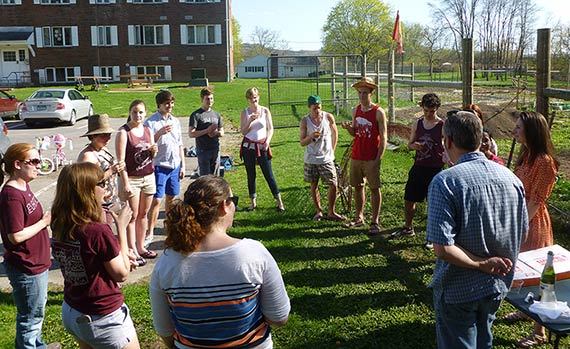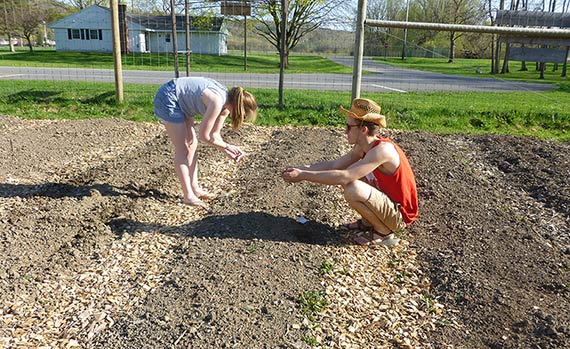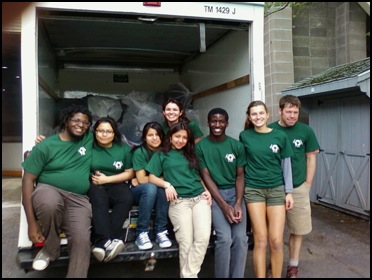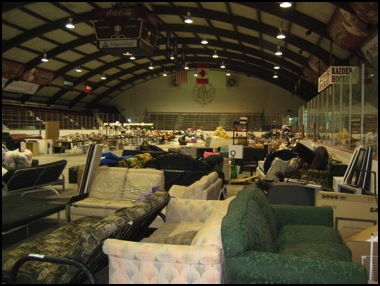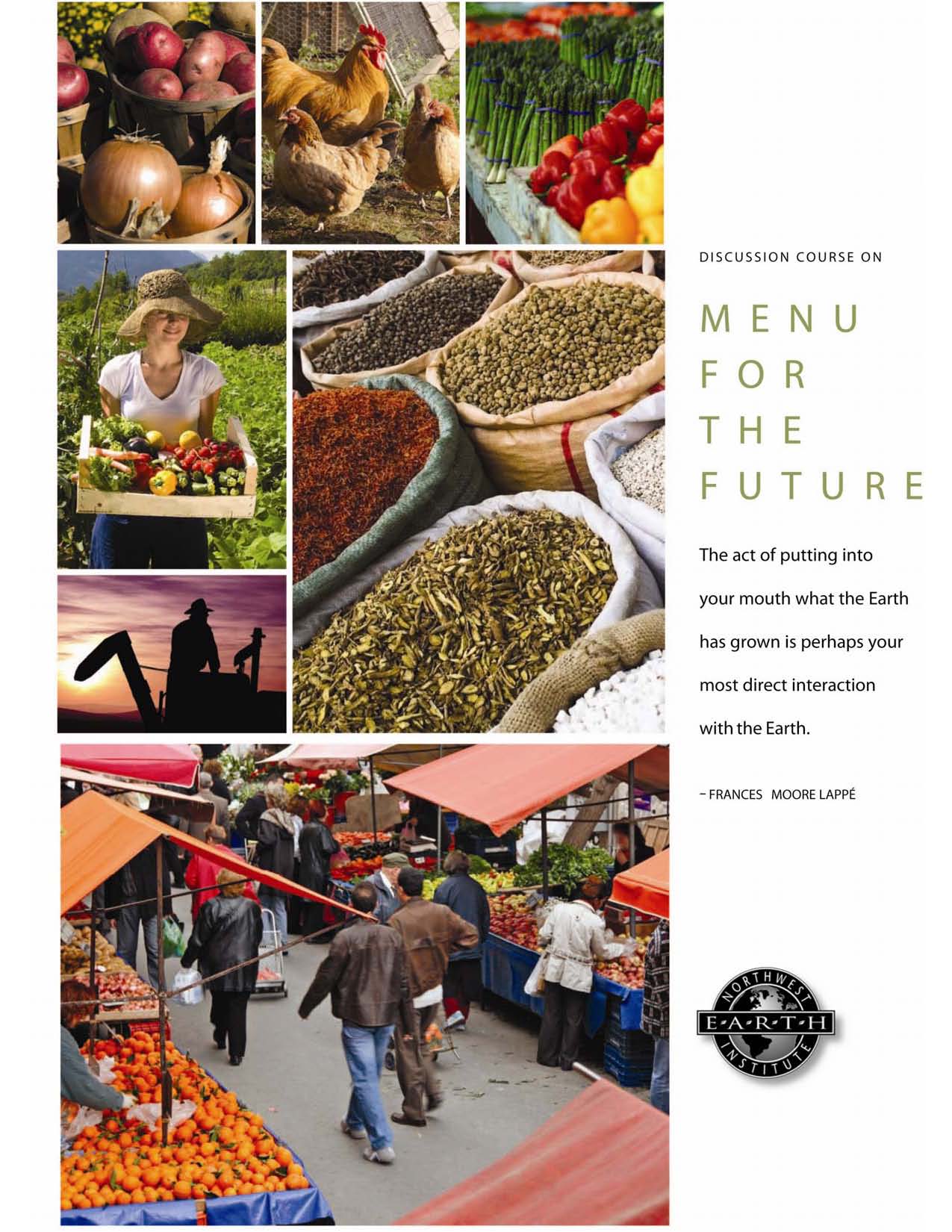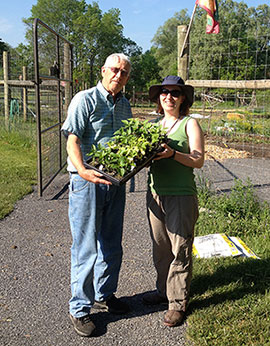 On Tuesday, May 28, 2013, over 100 plants were donated to the Colgate Community Garden by Sam Stradling of the Hamilton Food Cupboard. Plants included tomatoes, peppers, cucumbers, and squash. As the growing season goes on, some of the produce harvested by the Colgate Community Garden will be donated back to the Food Cupboard in exchange for providing so many plants.
On Tuesday, May 28, 2013, over 100 plants were donated to the Colgate Community Garden by Sam Stradling of the Hamilton Food Cupboard. Plants included tomatoes, peppers, cucumbers, and squash. As the growing season goes on, some of the produce harvested by the Colgate Community Garden will be donated back to the Food Cupboard in exchange for providing so many plants.
According to Sam, “The Hamilton Food Cupboard currently assists about 170 families a month living in the Hamilton and Madison Central School Districts with some of their food needs. Over the past several years the Cupboard has made a determined effort to provide the healthiest food that is available. With considerable local support, this effort has translated into working with the local (farm) community to provide fresh produce, fruit and vegetables, to the patrons through the summertime and into the fall, including the Thanksgiving and Christmas distributions. We have also assisted families who can grow their own produce by providing seeds and seedlings. Last year, with support from the Community Foundation of Central New York and Colgate’s Konosioni Society, we purchased a tunnel greenhouse and are now growing our own seedlings for distribution. We are pleased also to be able to provide seedlings for the Colgate Community garden. Some of the produce grown in the Colgate garden will be available for distribution at the Cupboard, as well as produce that will be purchased from and donated by the local farm community. All foodstuffs are provided by the Cupboard to its patrons at no cost.”
Part of the mission of the Colgate Community Garden is to provide increased opportunities for interested individuals to learn more about sustainable food production and the benefits of eating healthy. This relationship with the Food Cupboard is a positive step in that direction!



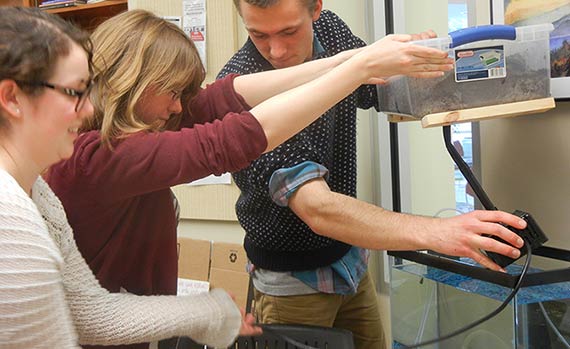
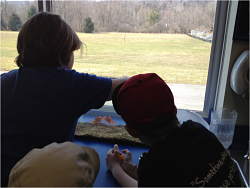 They designed their system and held a workshop where 15 students tested, and proto-typed the mini aquaponics system. After making a few modifications to the soil and the water flow system, they found the perfect system. The materials for a second system were assembled and they lead a 1 hour science class in Mr. Latella’s 5th Grade Classroom at
They designed their system and held a workshop where 15 students tested, and proto-typed the mini aquaponics system. After making a few modifications to the soil and the water flow system, they found the perfect system. The materials for a second system were assembled and they lead a 1 hour science class in Mr. Latella’s 5th Grade Classroom at 